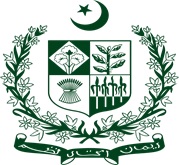NCSW’s vision is to seek a democratic, just, peaceful and a tolerant society where all citizens are equal irrespective of sex, race, religious beliefs, geography and ethnicity, where diversity is accepted and celebrated. Our main aim is to promote gender equality and women empowerment and protect rights; monitor legal, social and economic rights of women.
Mandated Functions and Powers of the Commission
- Examining policies, programs and other measures taken by the Federal Government for gender equality, women’s empowerment and assess implementation.
- Review all Federal laws, rules and regulations affecting the status and rights of women and suggest repeal, amendment or new legislation essential to eliminate discrimination.
- Sponsoring, steering and encouraging research to generate information, maintaining a database for national policy and strategic Action for women empowerment.
- Developing and maintaining interaction and dialogue with non-governmental organisations, experts and individuals.
- Maintain active association with similar Commissions and institutions in other countries for collaboration and action to achieve gender equality at the national, regional and international level.
- Mobilise grants from domestic and international, including multi and bilateral agencies for meeting any of its obligations or performing its functions.
- Facilitate and monitor implementation of international instruments and obligations affecting women, girls, and advise the Federal Government before accession to any such proposed international instruments, protocol or treaty.
- Provide recommendations to the Federal Government the signing or ratifying of international instruments affecting rights of women and girls.
- Seek and receive information, data and documents from any federal source or entity in the course of performance of its functions.
- Inspect any jail, sub-jail or other places of custody with prior permission of the provincial government.
- Exercise Powers of Civil Court under the Code of Civil Procedure, 1908 (Act V of 1908) while inquiring into complaints of violations of women rights.
- Advocate, lobby, build coalitions, network and catalyse for promoting women’s cause on the basis of evidence.
- Liaise with Provincial Commissions and concerned provincial organisations.

